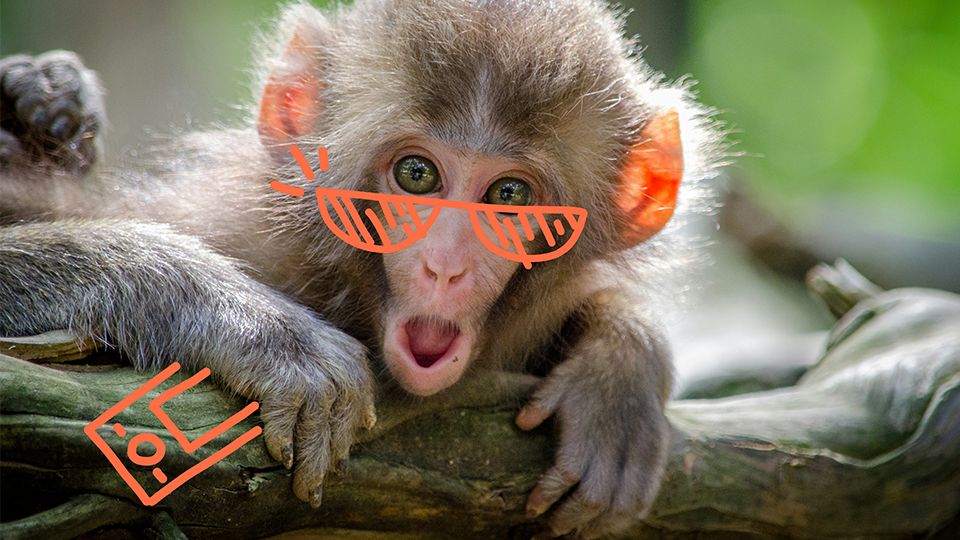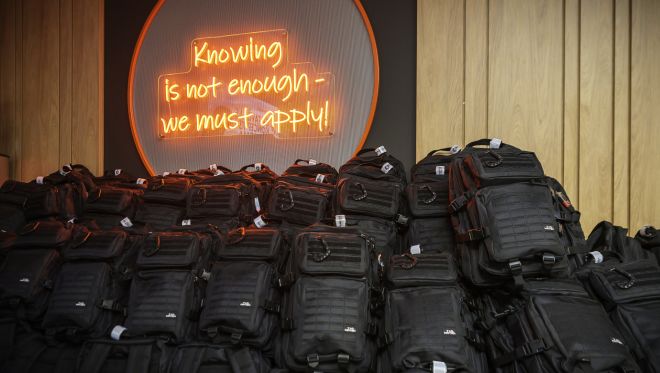You might be surprised to hear, but we often receive claims about monkey-related incidents during travel. It's true! These inadvertently tamed animals have become so comfortable around tourists that they tend to jump on, bite and injure travelers as well as steal their valuables. Kaspars Elcis, the creator of the travel blog TripThis, tells us about the countries where aggressive monkeys are most commonly found and shares tips on how to stay safe and avoid becoming yet another victim.
- Two monkeys jumped on my head and broke part of my front tooth!
- A wild monkey put its foot in my mouth, and I needed a vaccine against rabies!
- I gave a monkey in Bali a banana, and it bit me!
According to Balcia claims manager Dāvids Lövald, these are just a few examples from travel insurance claims we've received that mention monkey-related incidents. From bites, scratches, and straight forward attacks to stolen items – these incidents can lead to losses of up to several hundred euros.
These monkeys are clever and have learned that they can take food from tourists directly or steal different items that can be traded for food later.
Kaspars Elcis explains that tourists are more likely to experience monkey attacks in Asian countries such as Japan, Thailand, Indonesia and India. However, Gibraltar is the only place in Europe where a family of wild monkeys can be found, and tourists are also at risk of attacks there. “The population of wild monkeys in these areas is rapidly increasing, and they are used to humans and no longer fear them. The main reason why monkeys attack people are food and interesting items the tourists carry,” says Kaspars Elcis.
VIDEO - Why are these monkeys stealing from tourists? | World's Sneakiest Animals - BBC
Credits: Why are these monkeys stealing from tourists? | BBC
How to avoid monkey attacks?
No matter how tempting it may seem, Kaspars Elcis advises against taking selfies with monkeys. It is better to keep a safe distance – don't initiate contact or take pictures with them. “Monkeys perceive eye contact and showing teeth as aggressive behavior, so it's best to avoid such signals. Sudden movements and shouting can provoke them to attack, which is why it's important to stay calm and composed in their presence. Feeding monkeys is not recommended either, as it can lead to their habituation and dependence on human food. Also, you should not eat or hold food in front of them, as this can attract them and lead to injury if they try to take your food away,” he explains.
He points out that monkeys are also attracted to shiny objects, so when going to monkey parks, it's best to remove jewelry and piercings, avoid wearing sunglasses, and for the long hair owners – put it up in a bun!
What to do if you get attacked by a monkey?
Monkeys usually take shiny objects from tourists with the intention of trading them for food. If you find yourself in such a situation, you can try offering the monkey food in exchange for your belongings. However, if you are unable to retrieve your belongings or if they have been damaged, it's best to just contact your insurer who will cover the costs.
In the unfortunate event that a monkey causes any physical harm, the wound must be washed with water and disinfected. Head straight to the nearest medical facility to undergo necessary tests and receive a rabies vaccine. Balcia’s expert Dāvids Lövald points out that these costs are covered by travel insurance, so it is important to keep all receipts and invoices as they can be later submitted to the insurer to receive compensation.
Balcia offers wide coverage travel insurance that is valid worldwide 24/7. With Balcia make sure to use our mobile app for a quick and easy way to buy travel insurance and submit claims anytime, anywhere.
Want to work in insurance? Take a look at our vacancies page and see what your career at Balcia could look like!







